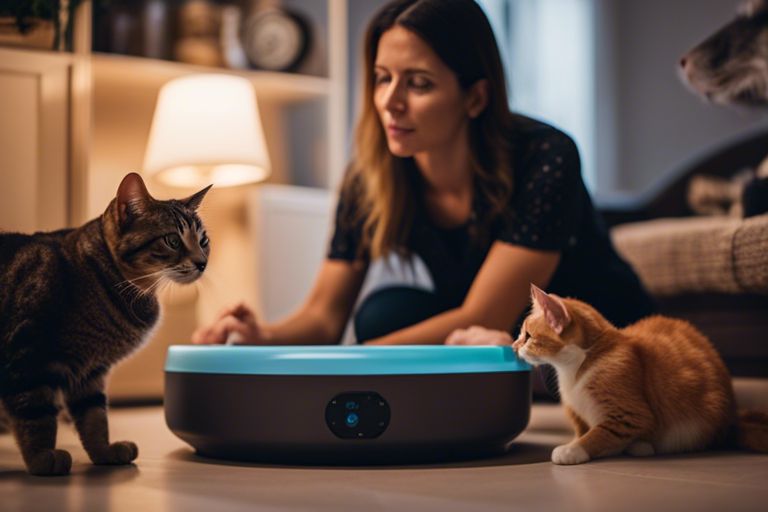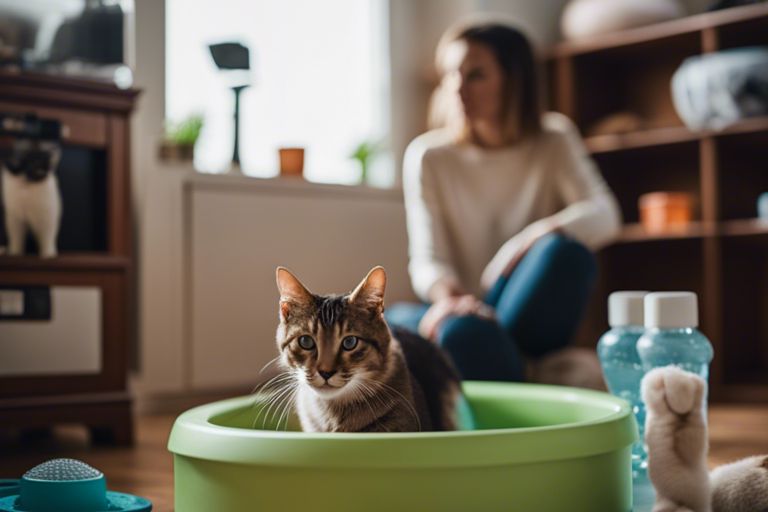If you’ve noticed your feline friend excessively drooling lately, you may be feeling concerned and puzzled about the potential causes behind this behavior. Excessive drooling in cats can be attributed to various factors, including dental issues, oral health problems, ingestion of toxic substances, or underlying medical conditions. It’s essential to pay attention to your cat’s drooling and seek immediate veterinary attention if you suspect something may be amiss. In this blog post, we’ll delve into the common reasons why your cat may be drooling excessively and what steps you should take to address this concerning issue.
Key Takeaways:
- Oral health issues: Excessive drooling in cats can be a sign of dental problems such as gum disease or tooth decay.
- Foreign objects or obstructions: Ingestion of foreign objects or obstructions in the mouth or throat can cause excessive drooling in cats as a result of irritation or pain.
- Illness or underlying health conditions: Excessive drooling can be a symptom of underlying health issues such as kidney disease, liver disease, or respiratory infections in cats.
- Stress or anxiety: Cats may drool excessively due to stress or anxiety, especially in unfamiliar environments or during veterinary visits.
- Toxic exposure: Ingestion of toxic substances, plants, or household chemicals can lead to excessive drooling in cats as a reaction to the toxins.
Common Causes of Excessive Drooling
The causes of excessive drooling in cats can vary, and it’s important to understand the potential reasons behind this behavior. In this chapter, we will delve into some of the most common causes of excessive drooling in cats so that you can better understand what might be triggering this issue in your feline companion.
Dental Issues
The most common cause of excessive drooling in cats is related to dental issues. If your cat has dental problems such as gum disease, tooth decay, or oral ulcers, they may be experiencing pain or discomfort in their mouth, leading to increased drooling. Additionally, objects stuck between your cat’s teeth or foreign bodies lodged in their mouth can also cause excessive drooling. It is important to regularly inspect your cat’s teeth and gums for any signs of dental issues, and to take them to the vet for regular dental check-ups to prevent and address any problems that may be causing excessive drooling.
Toxins and Poisoning
Your cat may experience excessive drooling as a result of ingesting toxins or poisons. Household items such as certain plants, cleaning products, and human medications can be toxic to cats and lead to excessive drooling. Moreover, some human foods and essential oils can also be harmful to cats, causing them to drool excessively. Make sure to keep these items out of your cat’s reach, and be aware of any potential sources of poisoning in and around your home. If you suspect that your cat has ingested a toxic substance, seek immediate veterinary attention to address the issue and prevent any serious health complications.
Health-related Factors
Some health-related factors can contribute to your cat’s excessive drooling. It is important to consider the following:
- Oral diseases and injuries
- Systemic illnesses
- Any recent changes in your cat’s behavior or health
Oral Diseases and Injuries
If your cat has excessive drooling, it may be a sign of oral diseases or injuries. These can include dental issues such as periodontal disease, oral tumors, foreign objects stuck in the mouth, or injuries to the tongue or gums. It’s important to have your cat’s oral health evaluated by a veterinarian to rule out any potential problems.
Systemic Illnesses
Excessive drooling in cats can also be a symptom of systemic illnesses such as kidney disease, liver disease, diabetes, or respiratory infections. These conditions can affect your cat’s overall health and may require immediate medical attention. If you notice excessive drooling along with other concerning symptoms, it’s crucial to seek veterinary care for your cat as soon as possible.
Behavioral and Environmental Considerations
Not all cases of excessive drooling in cats are caused by medical issues. Sometimes, it’s important to consider your cat’s behavior and environment to understand the reason behind the drooling.
Stress and Anxiety
If your cat is feeling stressed or anxious, it may result in excessive drooling. Common stressors for cats include changes in their environment, new additions to the family, or loud noises. If your cat is drooling more than usual and exhibiting other signs of stress, such as hiding, excessive grooming, or loss of appetite, it’s important to address the underlying cause and seek help from a veterinarian if needed.
Interaction with Certain Plants or Substances
Your cat may also be drooling excessively due to interaction with certain plants or substances in your home. Some common household plants, such as lilies, are highly toxic to cats and can cause excessive drooling, vomiting, and even kidney failure. Additionally, exposure to toxic substances like cleaning products, insecticides, or human medications can also lead to drooling in cats. It’s crucial to keep these harmful items out of your cat’s reach to prevent any accidental ingestion and subsequent drooling.

Diagnosis and Treatment
After identifying the possible reasons why your cat is drooling, it’s important to consult with a veterinarian to determine the exact cause and the appropriate treatment. In some cases, excessive drooling can be a sign of an underlying health issue that requires professional attention. For more detailed information on possible causes of drooling in cats, you can visit 4 Reasons Your Cat Is Drooling.
When to Visit the Vet
If you notice that your cat’s drooling is persistent, excessive, or accompanied by other concerning symptoms such as loss of appetite, difficulty breathing, or changes in behavior, it’s important to schedule a veterinary appointment as soon as possible. These symptoms can be indicative of serious health issues that require immediate medical attention. Remember, it’s always better to be safe and have your cat examined by a professional.
Possible Treatments and Interventions
Once the underlying cause of your cat’s excessive drooling has been identified, your veterinarian will recommend the most appropriate treatment or intervention. This can range from medication to address dental issues or oral infections, to more advanced procedures for addressing underlying health conditions. Always follow your vet’s recommendations carefully and ensure that your cat receives the necessary treatment to alleviate their discomfort and improve their overall well-being.
Why does my cat have excessive drooling?
To wrap up, excessive drooling in cats can be caused by a variety of factors such as dental issues, oral infections, motion sickness, or an underlying health condition. It’s important to take note of the frequency and duration of your cat’s drooling episodes and consult with a veterinarian if you have any concerns. Your vet can perform a thorough examination to determine the underlying cause of the excessive drooling and provide appropriate treatment to address the issue. Remember to always prioritize your cat’s health and well-being by seeking professional help when necessary.
FAQ
Q: Why does my cat have excessive drooling?
A: Excessive drooling in cats can be caused by a variety of factors, including dental issues, mouth or throat infections, ingestion of toxic substances, nausea, heatstroke, or even certain medical conditions. It’s important to consult with a veterinarian to determine the underlying cause of your cat’s excessive drooling.
Q: How can I determine if my cat’s drooling is excessive?
A: If you notice that your cat is drooling more than usual, or if the drool is excessive, persistent, stringy, or accompanied by other symptoms such as bad breath, loss of appetite, or changes in behavior, it’s a sign that there may be an underlying issue that needs to be addressed by a veterinarian.
Q: What can I do to help my cat with excessive drooling?
A: The first step is to schedule a veterinary appointment to determine the cause of the excessive drooling. Depending on the underlying issue, treatment may involve dental care, medication, or supportive care such as fluid therapy. It’s essential to follow your veterinarian’s recommendations and closely monitor your cat’s condition to ensure a full recovery.

Jayley, a devoted cat enthusiast, also writer for other cat blog as well. She aims to dedicated to providing comprehensive information, insights, and advice on everything you’d ever want to know about our whiskered companions.
